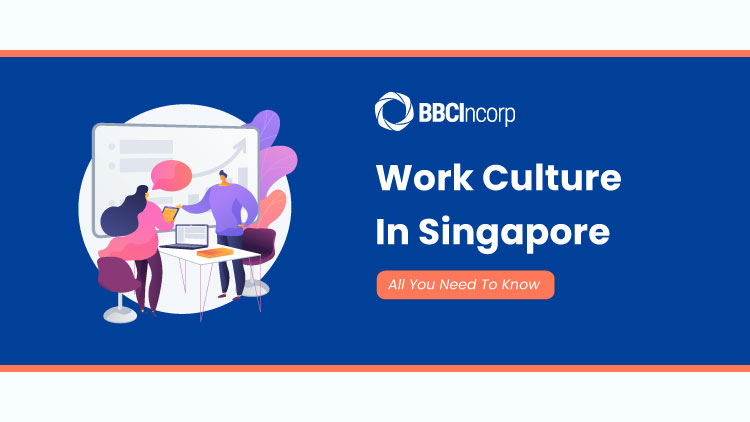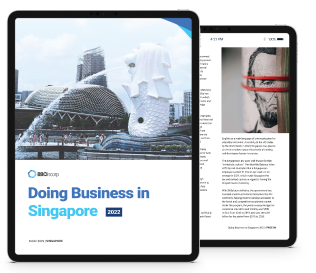
Singapore is one of the top working environments in the world. All thanks to its favorable working conditions, thriving economy, and stable political system.
Nevertheless, there are certain unique traits to Singapore’s work culture. Mainly because of the ethnic diversity and the Asian-rooted nature of the country.
If you’re planning to start a business or a career in Singapore, looking into its work culture is always necessary.
This is to avoid culture shock and help you quickly get familiar with the dynamic climate and talented workforce in Singapore.
Overview of Singapore work culture
More and more global businesses have made their way to Singapore and put a great amount of investment into this beautiful country. For that reason, the work culture of Singapore has gradually become a mixture between the East and the West.
Typically, there’re 4.03 million Singapore residents, including citizens and permanent residents as of 2021. This accounts for more than 70% of the population. The Singapore non-residents take up the rest 30%, approximately 1.45 million.
The growing number of global businesses has also shaped Singapore into a highly competitive environment. As such, it’s crucial that you learn and understand Singapore’s work culture, whether you’re a business owner or an employee.

Culture diversity
Singapore is a multi-radical and multi-cultural country. The majority of its citizen population is Chinese (76.2% ), Malaysian (15%), and Indian (7.4%).
Being a diverse country, Singapore adopts 4 official languages – Malay, English, Mandarin, and Tamil. Among these, Malay is the national language. Meanwhile, English is widely taught at school and is the main business language.
You can clearly see that Singapore’s environment is quite Asian-oriented. To be more specific, the working culture in the country can be hierarchical, group-focus, and stricter with many rules and regulations.
Thus, if you’re not familiar with the Asia working environment in general, make sure you spend time picking the basic concepts before doing business in Singapore.
If you’ve just started a business and wished to access the pool of talented workforce in Singapore, applying for an Employment Pass is a good idea!
Hierarchical working system
Unlike some Western countries where staff can openly exchange ideas with managers and colleagues, it can be quite an opposite in Singapore. This is the main reason why Westerners may experience culture shock when working for local Singapore companies.
Singaporean follow a hierarchical working structure, meaning the decision-making power lies in the hand of people with higher positions.
Lower-level employees can raise their opinions but in a respectful manner. Moreover, you should not use an abrupt tone or back-talk to your managers.
If you start working in Singapore soon, make sure you show respect to your seniors, especially when they’re older than you. Besides, avoid criticizing a matter directly with your seniors. Instead, find a way to raise an open discussion in your team.
By doing so, you have a better chance to be heard, without appearing rude and disrespectful to your Singaporean colleagues.
If you feel the hierarchical structure is not your style, consider setting up your businesses to adopt your own working style. With an Entrepreneur Pass, you can relocate to Singapore and incorporate a company. Unlock your opportunity right now!
Following rules
Singapore has extensive rules and regulations and the people hardly violate any of them. There is no exception for the workplace.
Similar to other Asian countries, Singaporeans establish working patterns for others to follow. They tend to stick to this set of rules and avoid making changes too often.
In Singapore, bosses and employers normally don’t encourage their staff to go on with some crazy ideas. Creativity is needed for work but only to some reasonable extent.
Yet, due to the blooming effect of globalization, many businesses are giving more freedom and flexibility to individuals as well as encouraging them to work creatively.
Group priority
Companies in Singapore prefer collectivism over individualism. It means that they prioritize the result of the whole group rather than an individual.
Unlike Western countries where individuals strive for themselves and get recognition, Singaporean prefer working for achievements as a team.
Each person has their own responsibilities and they share rewards together.
Working hours in Singapore
As common practice, normal working hours in Singapore of work are:
- If you work 5 days/week: up to 9 hours/day or 44 hours/week
- If you work more than 5 days/week: up to 8 hours/day or 44 hours/week
According to the Employment Act, the maximum working hours are 12 hours per day.
Also, you can work overtime up to 72 hours per month with payment at least 1.5 times the basic hourly rate.
In fact, Singaporeans are very hard-working. They’re well-known for being workaholics. This is due to the competitiveness among businesses.
Long-hours work has become a part of the Singapore work culture. People tend to stay longer hours at their office to get the work done as soon as possible.
According to the statistics from the Ministry of Manpower, the total paid working hours of a Singapore employee were 44.4 hours per week in 2021.
n average, a Singaporean worked overtime 2.5 hours per week in June 2021, down from 2.6 in 2019. To ensure the work-life balance, the Singapore government has announced several policies, one of which is a drop in total paid working hours in Singapore. Particularly, the working days in Singapore have been gradually reduced over the years.
Free ebook
Get your Singapore business started with key matters covered in our all-in-one guideline
- Incorporation procedure
- Annual compliance requirements
- Tax structures
- Employment landscape

Conclusion
Below are some key points for you to consider:
Key takeaways
- Singapore’s workforce is multicultural with Chinese accounting for the most proportion.
- Hierarchical structure is the foundation of Singapore’s working environment and collectivism is widely preferred.
- Long working hours are part of the Singapore business culture due to the market competitiveness.
- Since globalization is becoming more common, the work culture in Singapore will experience some changes in the next few years, especially among the young generations.
Ready to incorporate in Singapore now? We offer top-notch Incorporation as well as Work Pass services in Singapore.
Disclaimer: While BBCIncorp strives to make the information on this website as timely and accurate as possible, the information itself is for reference purposes only. You should not substitute the information provided in this article for competent legal advice. Feel free to contact BBCIncorp’s customer services for advice on your specific cases.
Get helpful tips and info from our newsletter!
Stay in the know and be empowered with our strategic how-tos, resources, and guidelines.


